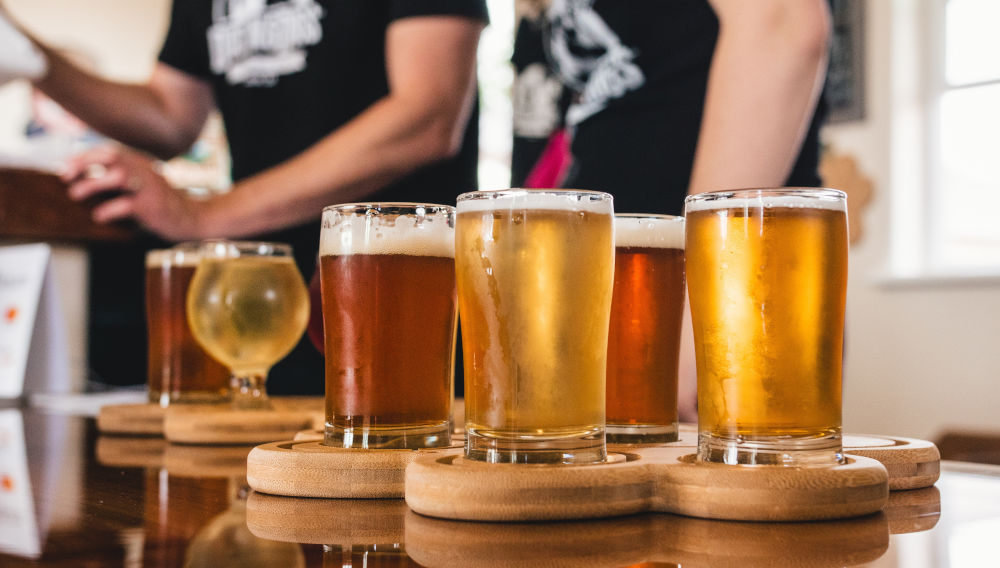AB-InBev culls US craft beer portfolio and sells eight brands to Tilray
USA | So AB-InBev got rid of several craft beer brands which were plunging. But what will Canadian cannabis company Tilray do with them?
AB-InBev announced on 7 August that it will sell eight craft beer brands to Tilray Brands, significantly slashing AB-InBev’s craft beer portfolio.
Tilray will expand its craft beer holdings, which currently include Georgia’s SweetWater, New York’s Montauk, as well as Green Flash and Alpine from California. The deal is expected to close in the autumn.
The brands to change hands include Shock Top, a Belgian White, Breckenridge, Blue Point, 10 Barrel, Redhook, Widmer Brothers, Square Mile cider, and Hiball Energy, which AB-InBev already discontinued in May this year. The purchase price is USD 85 million in cash, according to Tilray, or 6 times EBITDA.
The transaction will include current employees, breweries, and associated brewpubs. In total, Tilray will acquire production facilities in Portland and Bend (Oregon), Littleton (Colorado), and Patchogue (New York), as well as eight brewpubs across the country. The current annual production volume across all these brands and locations is estimated in excess of 500,000 barrels, according to the website goodbeerhunting.com. Combined, these brands represent sales of USD 180 million and USD 14 million in EBITDA.
What does Tilray see in these brands?
After the deal, AB-InBev will be left with a dozen or so craft beer brands, notably Goose Island and Elysian. Observers say that AB-InBev is keeping its robust and strong players, which are all likely to become its next craft successes.
While Tilray’s top brass sounded enthusiastic about the deal, many wonder what their long-term tactic is. True, the purchase will allow Tilray to further diversify its business away from cannabis. Tilray’s CEO Irwin Simon said it will now be split nearly evenly between recreational and medical cannabis (30 percent), beverage alcohol (30 percent), and medical cannabis distribution (30 percent), while food and wellness brands will own a smaller slice of the pie (10 percent).
But several of these brands (eg Shock Top, Breckenridge, Blue Point, Widmer Brothers), are in decline. Observers point out that turning around a failing beer brand happens once in a lifetime. Pabst did it in our lifetime with its Pabst Blue Ribbon, but no one else has.
Expanding distribution
Countering the doubters, Tilray’s CEO said: “It’s not what the brands were doing before, it’s what we can do with them going forward.” Mr Simon told investors that the acquisition would expand Tilray’s distribution into new regions and solidify the company’s national market share at around 5 percent of US craft beer, with beer output increasing from 4 million to 12 million cases (1 million hl) annually.
Goodbeerhunting.com commented that “Tilray is acquiring the breweries from AB-InBev in a much more established stage, and for a much lower price: Compare USD 85 million to the more than USD 600 million AB-InBev spent on its 13 craft breweries and the purchase of Craft Brewers Alliance.”
Tilray banks on alcohol
Tilray may not be a household name, but the company is a major player in the global cannabis industry. It was founded in 2014 and became one of the first licensed producers of medical cannabis in Canada, before expanding operations to Portugal, Germany, and New Zealand, among other places. In 2018 it became the first cannabis company to be publicly traded on a major US stock exchange. In 2021 it merged with Aphria to create the largest cannabis firm in the world in terms of revenue and reach. It currently has a market cap of USD 2 billion. However, Tilray has yet to become sustainably profitable. It reported USD 1.4 billion in losses for fiscal year 2023. Only beverage alcohol proved a bright spot, with sales up 33 percent to USD 95 million.
Keywords
USA craft beer breweries craft beer market brands
Authors
Ina Verstl
Source
BRAUWELT International 2023

